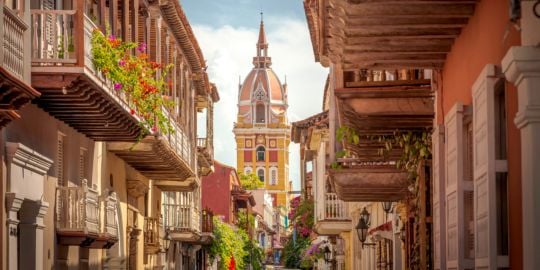I am a retired American and live in Mexico. I have to move to a permanent resident in late 2020. In the meantime, I would like to obtain a retirement visa for Colombia. I will travel to the United States in the next couple of days and spend about two weeks there before returning to Mexico. That should be enough time for me to start putting together the required documents that I will need from the States. Can someone give me the latest on those requirements? I will also check some Colombian Consulate websites. My plan would be to only send six months per year in Colombia.
Can someone explain the pros and cons of spending six months a year with and without a retirement visa?
POST A REPLY
Info on Retirement Visa.
I assume you know that if you spend 183 days or more in Colombia in any 365 day period (not necessarily a calendar year) you are considered a tax resident and must file a declaración de renta and possibly also pay taxes on your world-wide income of any type, whether it be from disability payments, Social Security, work, anything.
For me the pros of going down just with a tourist visa are ease, convenience, much less paperwork, much less hassle and worry - you can still get 180 days in-country, renewing after 90 days and paying a small amount. Here's one article explaining the process:
https://elgenesisdelasunto.wordpress.co … -colombia/
Open a bank account? Why bother. Just get your money from an ATM/ATH as needed, once or twice a week or even less. Depending on your lifestyle you may not need much compared to the more developed world. Some banks' ATMs have a 600,000 COP limit per withdrawal, some more - but that's almost as much as the minimum monthly salary of 781,242 COP which nearly half of Colombians live on or even less. My US credit card company reimburses me any ATM fees and you get very close to the current exchange rate so it's no hassle and user-friendly.
Without a cédula de extranjería it can be harder to rent, but there are plenty of places that will rent to you - some may just want your passport number, and perhaps several months' rent in advance. Almost everything can be negotiable.
Because tenants have so many more rights than landlords in Colombia, the laws making it difficult to evict non-paying tenants, many landlords will not rent without a fiador or two to guarantee payment. But you can find those who will rent to gringos, on the assumption that they are more trustworthy than many Colombians. Some Airbnb rentals are open to negotiating more long-term stays at reduced rates, also.
If I were to live in Colombia year-round I'd certainly get the cédula de extranjería, though. This government site lays out the steps necessary:
https://www.nomasfilas.gov.co/memoficha … amite/T703
Although I agree with most of Brother Archer's excellent assessments, I disagree on the point of the cédula.
i say, don't get it if you don't have to. If you're in Colombia 180 days or fewer per year there is no pressure to get the ID card.
If you get it, you are obligated to buy into the EPS health insurance deal .. and, if you drive a car, you are supposed to get approved for a variety of tramités I'd just as soon avoid, including a redundant drivers license.
cccmedia in Depto. de Nariño
First of all, you will have to spend less than 180 days outside the country every year. In other words, you can't be out of the country more than 180 contiguous days or you lose your residency.
Having said that, I used Alan Gongora at Langon Law (http://langoncolombia.com/) They are inexpensive and on top of things. You will be able to do most of the work before you come to Colombia the first time.
Fred
Thanks for all the useful information, as usual per ccc and archer. Personally I like having the cedula and the insurance. WTH its only $30 usd month and includes dental and vision. Just renewed visa for 3 years instead of usual one. But I didnt know I could leave thecountry that long or 180 days...without losing my cedula/insurance.









